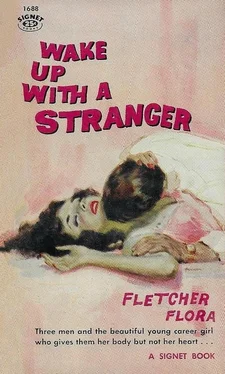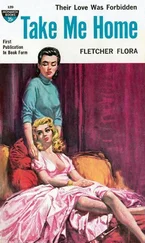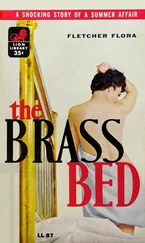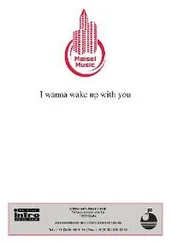“I regret the necessity for this action very much,” he said.
“It’s all right,” Enos said. “It’s perfectly all right.”
“If it were only that your instruction was weak, your techniques, or something of that sort, we could undoubtedly work it out. It is not only that, however, as I have tried to make clear. It is that you have lost control of the boys, which means, to be blunt, that you have lost their respect. This is a much more serious matter. Irremediable, I should say. Once you have lost control, nothing is left but to try to start again in another position. I realize, of course, that you have a contract for the remainder of the year, and the contract will be honored, that is, you will continue to receive your salary. However, for the good of the school, as well as for your own, we must remove you from the classroom.”
“I don’t care about the contract,” Enos said. “You can forget it.”
“Nothing of the sort.” The headmaster shook his head and frowned slightly, as if his word and honor had somehow been questioned. “The contract is binding.”
The headmaster was silent, staring at Enos across the desk. His lower lip began to tremble, and he took it gently between the thumb and index finger and pinched, gradually increasing the pressure until it became quite painful. Enos looked over the headmaster’s shoulder and through the pane of glass at the group of boys on the slope beneath the pines. The boy with pale hair crossed a path of light, from shade to shade. The white fire flared briefly and instantly died.
A shadow of irritation drifted into the pastel blue eyes of the headmaster as he began to understand finally that the situation was really quite abnormal. It was surely only appropriate that a young master facing failure and dismissal should betray some signs of distress, perhaps even plead for another chance, which the headmaster would have been willing to grant, but Enos seemed quite withdrawn and untouched. And as a matter of fact there seemed to be in him a feeling of deep and quiet relief, a profound thankfulness that circumstances had reached their present point of development. What the headmaster resented more than anything else, though he did not concede it even to himself, was the uneasy feeling that he had himself been maneuvered, through a distortion of normal values that he had not followed and could not understand, into a position of subordination. This was intolerable, forcing him to feel the distress that Enos should in all decency have been feeling, and he was forced to exercise careful control of his voice to prevent his resentment from becoming apparent.
“I have an impression that you are, perhaps, not well,” he said. “Have you consulted a doctor?”
“No, I haven’t seen a doctor.”
Enos continued to look through the glass into the remote bright world of the boys under the pines, and he thought of the other pines and of the doctor who had been in the place where the pines were. But now the remembrance did not distress him, for he knew that he would not be compelled to see that doctor again, or any other doctor, and that he was finally through with all such things, with doctors and boys and pines and schools and all distressing things. There were some words that expressed it very well, the words of a poem he had once read, words about one balm for many fevers, but he couldn’t remember them exactly. Anyhow, it did not matter, and it was, under the circumstances, clearly a ridiculous waste of time to sit here any longer in this room with this inadequate little man who was obviously quite determined to make a great deal out of what was, after all, very little.
He stood up abruptly and said, “I’m quite well, there’s no need at all to see a doctor. If you have said all to me that you want to say, I’d like very much to go.”
The headmaster’s lower lip began to tremble again, and he pinched it severely. He did not trust himself to speak and was actually so weakened by a sense of shock that he did not, for the moment, trust himself to rise from his chair. He merely nodded his head and continued to pinch his lip. He remained sitting in the same position for quite a long time after Enos was gone, resenting with unusual bitterness the young master’s pre-emptory attitude. Always afterward, thinking back, he remembered his resentment and was ashamed of it.
Outside, Enos walked down the slope. He walked across the grass and under the trees into the remote and halcyon world at which he had been looking a few minutes earlier, and it was as if the glass were still there, bright and shining and wonderfully protective between him and the world in which he walked and of which he was no part in any real sense. When he came to the boys beneath the pines, several of them looked at him and quickly away, but one of them spoke and said “Good afternoon, Mr. Simon.” He nodded and said “Good afternoon” in a perfectly normal voice, and he knew that they were watching him from behind and were certainly sorry for the part they had played in what had happened to him. But this did not matter to him at all, not in the least, except that he was truly a little amused that they presumed to pity him. He felt very good, remarkably light in a way that could almost be called effervescent, and as he walked in this remarkably light way, hardly bending the grass beneath his feet, he thought of a pleasant little tune and began to whistle it softly. And he kept whistling it over and over until he came to the house at the foot of the slope in which he lived.
He went inside and upstairs into his room, and when he was there he went directly across to the window that looked out upon the slope which he had just descended. He stood looking out the window and up the slope at the boys, who were still there beneath the pines, and he began to whistle again the little tune that had got into his head and was very pleasant to listen to. After a while he began to get tired — there was quite an ache in his legs from standing so long without moving — so he got an easy chair and pushed it up to the window and sat down. During all this he continued to whistle the little tune. Eventually he stopped whistling for a few minutes, but he missed it so much, there was such an emptiness without it, that he picked it up again and went on with it. The shade got deeper and deeper on the slope outside, which was the east side of the hill, and the boys walked up the slope and over the crest and were gone.
Pretty soon after that, with the shade getting deeper and the boys gone, he began to think of Donna, of the things they had done together and would never do again, and it was not painful, as it had been before, to think of her. This was also part of the new peace that had come with the acceptance of a very simple solution to everything. As a matter of fact, far from being painful, it was now quite pleasant to think of her; it gave him something to do while he sat in the chair and looked up at the darkening slope. He conceded that she had been very kind, and he was grateful for the kindness and wished that he had not struck her — a very bad thing to have done. If it were possible, he would certainly go back and tell her that he was sorry, but it was clearly not possible. What he had better do instead was to write her a note and tell her how sorry and grateful he was, and that everything would be all right from now on. Thinking about writing the note, he became so absorbed in the problem, whether to do it or not, that he forgot to continue whistling and this time did not even miss it.
In time he came to the conclusion that the note should surely be written, that it was no more than the simplest courtesy which was also an obligation. He got up to write it, but it was too dark; this necessitated turning on a light which he was reluctant to do. It was, altogether, another problem which had to be considered, and he stood in the darkness with his back to the window and thought about it. Because he felt he could not shirk the obligation, he eventually walked across the room and turned on a light and sat down at his desk and began to think about what he should write.
Читать дальше












